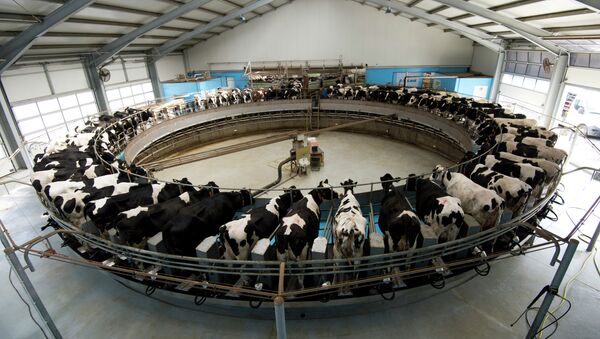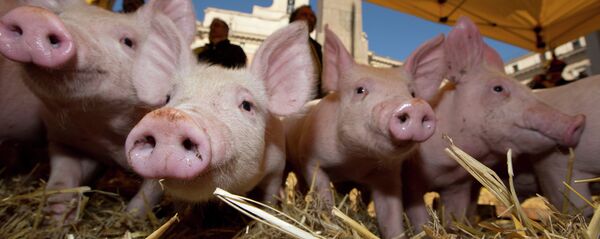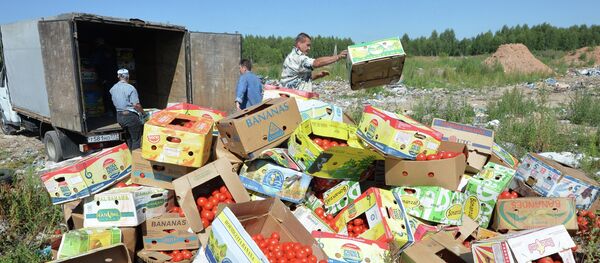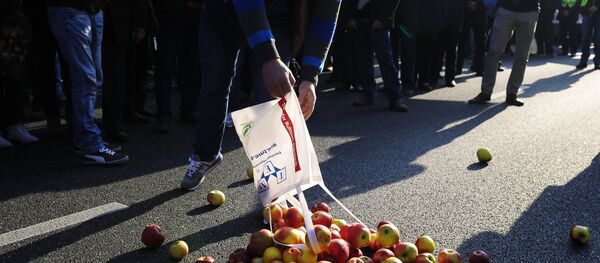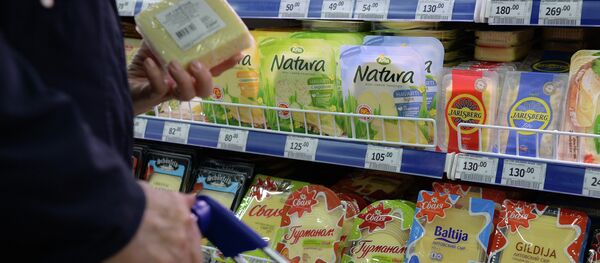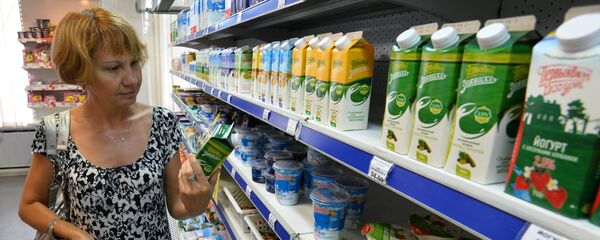The broadcaster noted that "the current crisis is [already] regarded as one of the most serious in the last 40 years," noting that with global milk prices already falling to a 30 year low, the current price of 2.65 krona (about 30 cents US) are already below the 3.60-3.70 krona (41-42 cents) minimum necessary for Swedish dairy farmers to make ends meet. Meanwhile, subsidies to Scandinavian dairy giant Arla Foods have fallen by 1.09 krona over the past year.
"We can't remember when we last experienced such a deep crisis, and no one knows when it will end," Färanäs-area dairy farmer Tore Engström told the broadcaster.
The Association of Swedish Farmers is convinced that if the situation is not dealt with in the next six months, many of Sweden's 4,200 private dairy farmers may simply begin go bankrupt, with 4 out of 5 already suffering serious economic difficulties. Association chairman Jonas Carlsberg told Radio Sweden that according to the data of his colleagues from Denmark, "86 percent of Danish milk producers face a critical situation. I can add that a similar situation exists in Sweden as well."
Czechs, Germans, Balts Too Feeling The Pinch
Like their Swedish counterparts Czech dairy farmers too have felt the pinch of the embargo, forced to look for new places to dump the 500 tons of butter and 1,500 tons of powdered milk once going to the Russian market.
German dairy farmers are also struggling, losing a market for 126,000 tons worth of cheese, according to Thorsten Sehm, the head of the Federal Union of German Milk Producers. Sehm told Russia's RIA Novosti that while only 1.26 million tons of Germany's 29 million tons worth of milk were exported to Russia prior to the embargo, "in any market, once the supply exceeds demand, it leads to drastic changes." So far, in Germany, this has led to a drop in prices to rates lower than "the crisis years of 2012 and 2009," Sehm noted.
The Baltic states seem to have been hit worst of all, with the countries' close economic ties with Russia prior to the embargo and difficulties in finding alternative markets leading to a situation where the countries' entire dairy industry is now on the verge of collapse. In Estonia, the sanctions war has resulted in a decline in a 30 percent decline in producer prices, with Estonian exports of milk falling by 17 percent in the first quarter of 2015 alone.
Latvia's dairy industry has suffered a similar decline, with agriculture minister Janis Duklavs noting that he would be appealing to the EU for additional funds to save the dairy industry from total paralysis, warning that farmers are on the verge of destroying their livestock and liquidating their farms.
In Lithuania, dairy farmers join the rest of the agricultural sector, which has faced a 30 percent decline in exports in mid-2015, compared with a year earlier. Agriculture Minister Virginija Baltraitiene noted that she will be asking the EU Commissioner for Agriculture for 32 million euros to help save the industry. Local experts warn that the country may be forced to reduce the production of dairy products by 50 percent in the near future.
Global Factors
The crisis has been exacerbated further by the fact that China has significantly reduced its purchase of powdered milk from the EU market.
German Farmers' Union spokesman Lohse explained that "of the 10 cent drop in milk prices, 2-3 cents are the result of the Russian embargo, with the rest resulting from other factors. These include the decline in exports to China…as well as the general overproduction of milk in the EU."
Federal Union of German Milk Producers chairman Sehm complained that local politicians "are not undertaking any efforts to create the appropriate regulatory environment for the milk market," adding that the same problem exists in France, Spain and Italy, and other EU countries.
In August 2014, Russia introduced an embargo on several categories of food products from the European Union, the United States, Canada, Australia, and Norway, in response to the anti-Russian sanctions introduced earlier by these countries over the ongoing civil war in Ukraine. In June of this year, the Russian government decided to extend the embargo until August of 2016, responding to the extension of EU sanctions.
